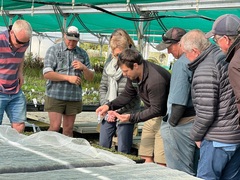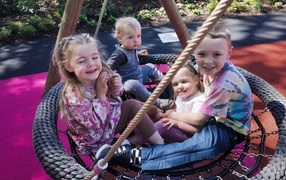Ian prints planters and possibilities with blossoming business
Ashley Smyth
29 October 2024, 9:27 PM
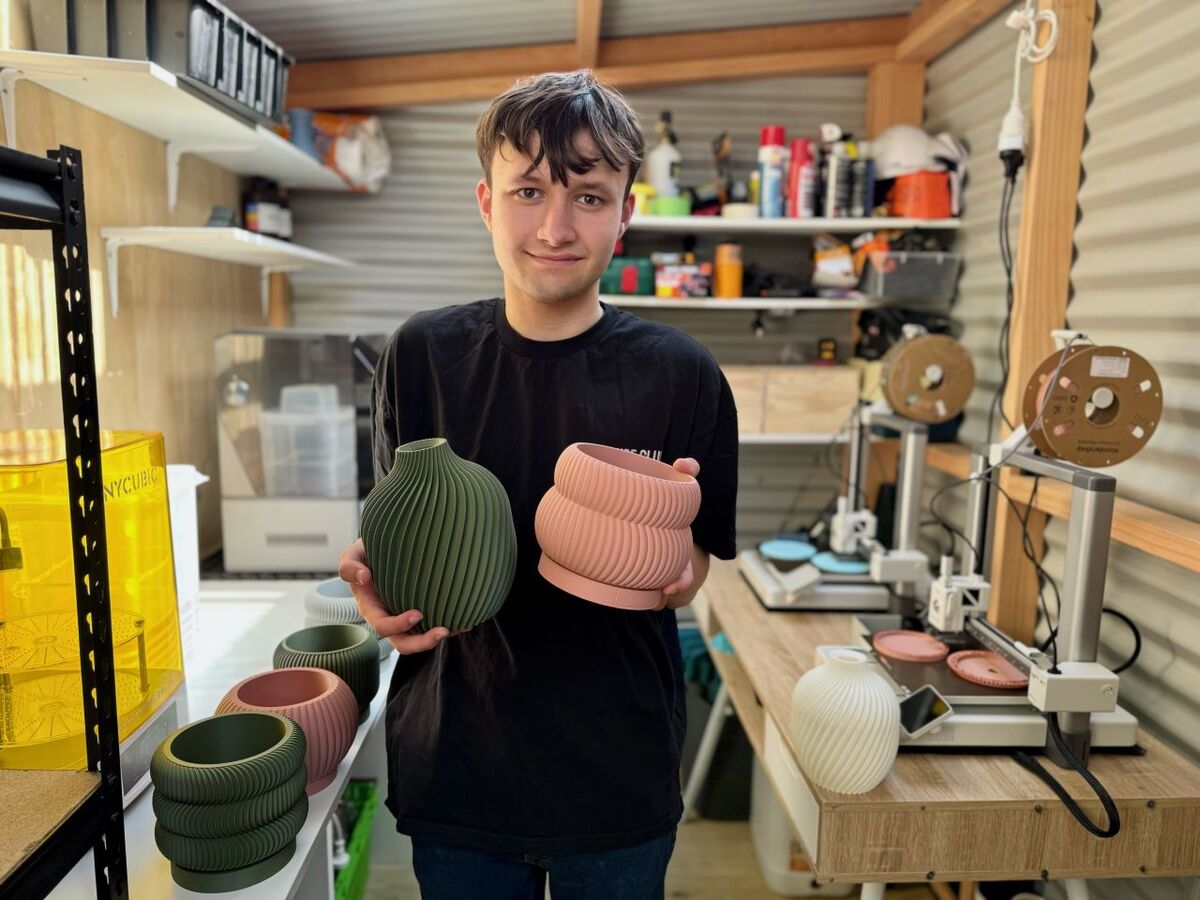 Ian Tacchini is making and selling planters and vases. Photo: Supplied/Yanina Tacchini
Ian Tacchini is making and selling planters and vases. Photo: Supplied/Yanina TacchiniSeventeen-year-old Ian Tacchini has autism spectrum disorder, and after getting a 3D printer about two months ago, he has gone into business making planters and vases. The Waitaki App caught up with the Ōamaru teenager and his mother Yanina, to talk about his new business venture.
Ian
Q. How long have you been using a 3D printer? I have been using it for two months now.
Q. What do you like about it? It 3D prints plastic and makes all kinds of useful things like planters, toys, lamps etc
Q. What made you decide to make planters? Because my mum already sells plants.
Q. How many have you made and sold? We did about over 60 planters already, and I sold over 30 now.
Q. Where is the money going? A percentage of the money is going to (children’s charity) Koru Care, and another percentage is going to me to save money to one day buy a house.
Q. The colours and patterns are amazing - where did the designs come from? The colours my aunty helped me with, and the designs come from a designer online and we chose the sizes and colours. I’m learning to make my own one day.
Q. How long does it take to make one? One pot planter takes me five to six hours and a flower vase eight hours
Q. Have you had any help? I have the help of my Dad and my Aunty Mayra.
Q. Is there anything else you would like to tell me about? Please buy one planter so I can raise money.
Yanina
Q. How did this idea come about? Ian always wanted to have his own 3D printer. His uncle used to own one and he always wanted to learn to use one. Pablo (his dad) is always looking for ways to connect with Ian and do things together.
Q. Tell me a bit about Ian's challenges and why doing something like this is so good for him? Right now Ian’s main challenge is social. Kids on the spectrum are super hard to socialise. He really wants to make friends, but kids are not very keen to be part of his life. Ian’s social life is getting less and less so we are doing as much as we can to give him a purpose in life.
Q. How complicated has it been to make it all happen? It's just complicated because we have to be involved, we already running companies, raising two other kids and working super hard, so this is like something extra for us. Even though Ian can do some things alone, he needs support all the way.
Ian needs support to understand the most simple things … Autism Spectrum Disorder (ASD) can significantly affect social communication and interaction, which can make even simple tasks or conversations feel overwhelming for someone like Ian.
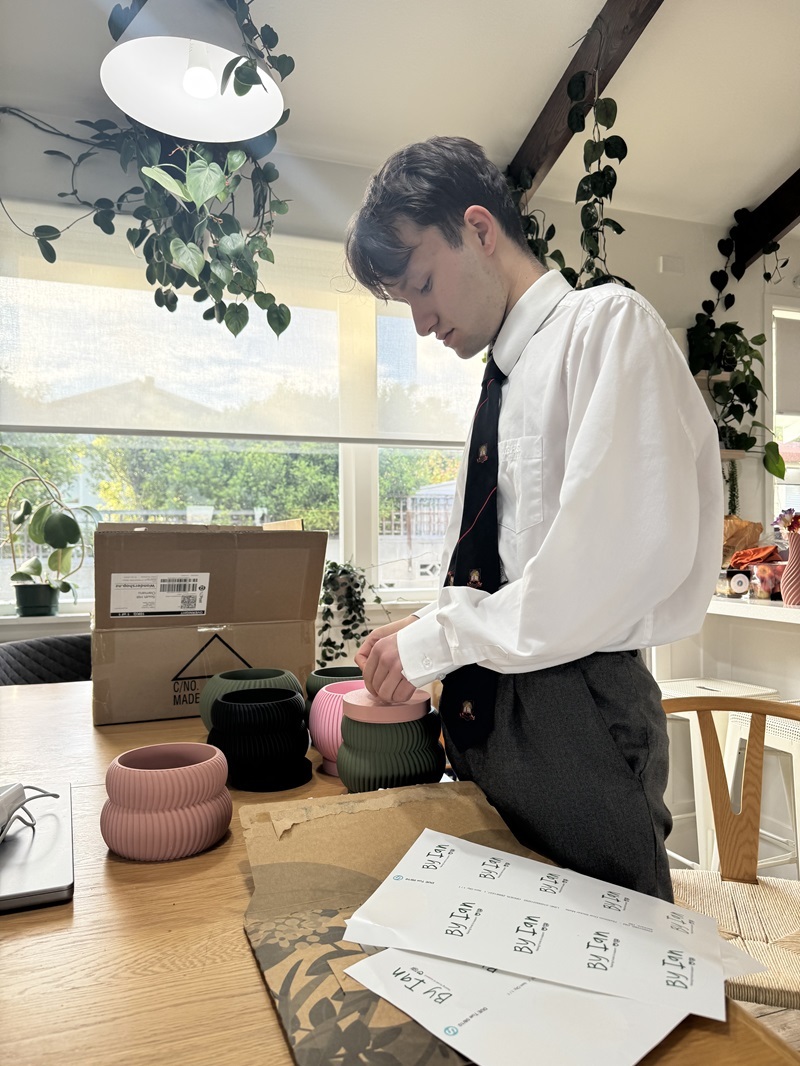
Ian labels his creations. Photo: Supplied/Yanina Tacchini
For many individuals on the spectrum, understanding social cues, body language, and even the subtleties of conversation can be quite difficult. While neurotypical people might pick up on these cues instinctively, those with autism may need explicit instruction and support to navigate social situations. This can include understanding tone of voice, facial expressions, or the nuances of sharing space with others.
With Ian, it seems like his experience with autism makes everyday interactions a complex process. He may struggle to grasp concepts that others find intuitive, and that can require me and Pablo to be patient and creative in our explanations. It can also mean breaking things down into smaller, more manageable parts or finding alternative ways to communicate that resonate better with him.
Q. Where can people buy the planters? You can buy planters and vases at Tees St cafe, Del Mar Restaurant and Art on Thames.
Q. What does something like this do for Ian and maybe his self-esteem or self-worth?
Supporting Ian in navigating social situations and developing skills can have a profound impact on his self-esteem and sense of self-worth.
When he feels included in society and sees that he can contribute meaningfully, it helps reinforce the idea that he has value and is capable of achieving things that others appreciate.
When Ian engages in activities that others enjoy or buy from him, it not only validates his efforts but also fosters a sense of belonging.
It shows him that he can participate in community life and that his contributions matter. Over time, these experiences can build his confidence and help him see himself as someone who can make a positive impact.
Additionally, as he learns to navigate social interactions, even in small ways, it can enhance his sense of independence. Feeling competent in these areas can further boost his self-esteem, allowing him to take on new challenges with a more positive outlook.
Ultimately, being part of a community where he feels valued can help Ian cultivate a strong sense of self-worth, reminding him that he is capable and deserving of respect, just like anyone else.
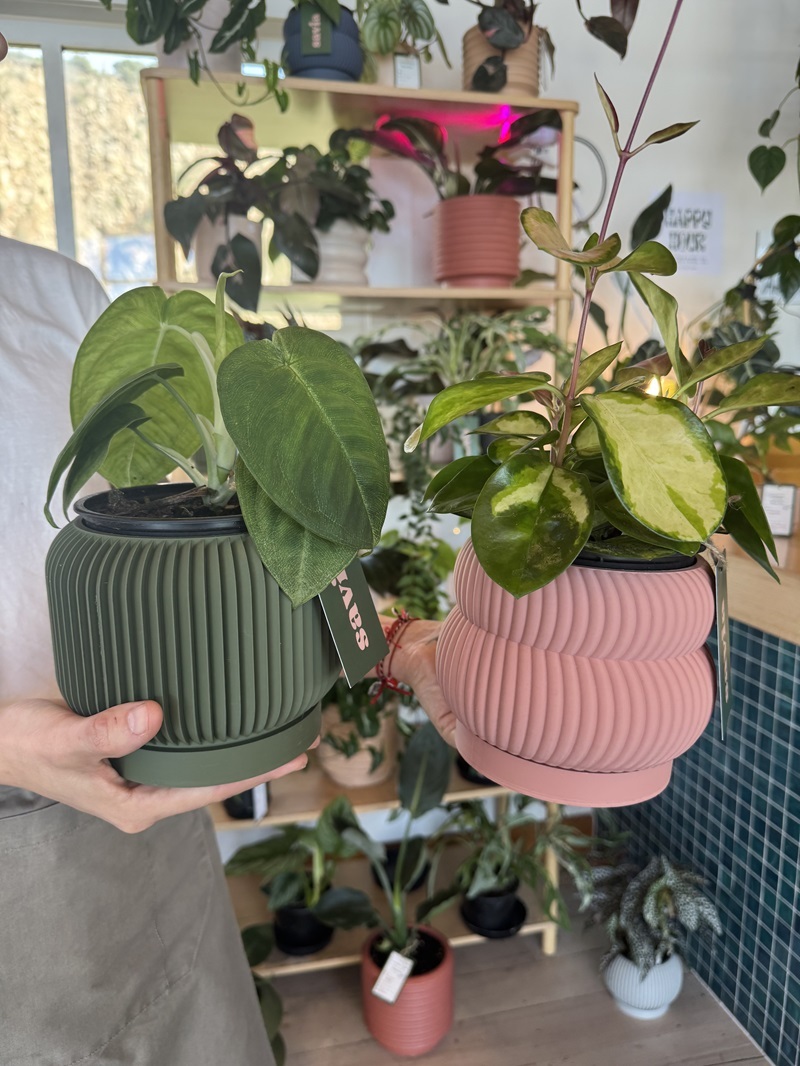
Ian's planters, including plants, are available at Del Mar Restaurant. Photo: Supplied/Yanina Tacchini
NEWS
WHAT'S ON GUIDE
MUSIC
COMMUNITY NOTICES
